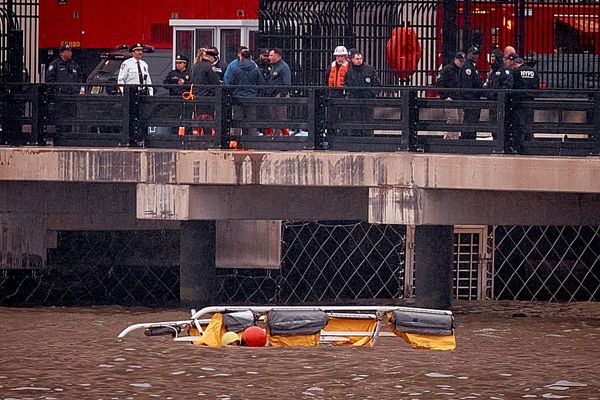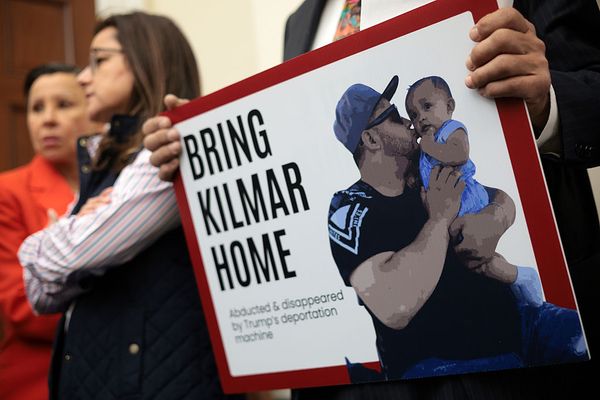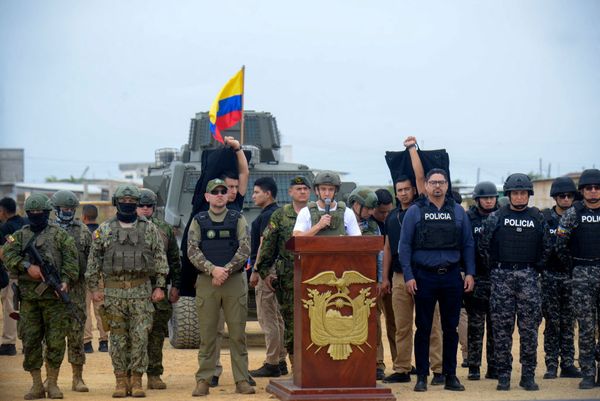Dan Hurley might be the actual protest vote. The doomsayers could have a point this time.
For the past few years, the doomsayers have viewed various major coaching changes as a sign of The End Times in college athletics. The tumultuous state of things—namely NIL and transfer chaos—was driving great minds away, they said.
But there likely were more simple explanations, like age or job security. Mike Krzyzewski, Nick Saban, Roy Williams, Jim Boeheim and Tara VanDerveer all were in their 70s upon retirement. Even Jay Wright had rolled the odometer over to 60. Chip Kelly leaving the UCLA Bruins to become an assistant with the Ohio State Buckeyes or Jeff Hafley bolting from the Boston College Eagles for a coordinator position in the NFL could be considered beat-the-posse moves. Jim Harbaugh, who already had great success in the NFL, was beating a different kind of posse back to the pros.
Hurley is a different deal. This one sets off some sirens.
The two-time defending national champion men’s basketball coach of the Connecticut Huskies is, according to ESPN, in talks with the Los Angeles Lakers about their vacant job. The offer was described by Adrian Wojnarowski as “massive.” To be clear, every coach at every level of basketball will listen if the Lakers call and make a massive offer. Krzyzewski did at least once, in 2004. Rick Pitino went down the road with the franchise a decade before that.
Perhaps Hurley will do what those two did—assess the situation and decide to stay put in a powerhouse college job. But if he leaves to follow a path littered with failure, it could be a sign of a college coaching star who is disillusioned. The current rules and a conference landscape that continues to tilt toward consolidated football power are not Hurley-friendly dynamics.
He is 51 years old and at the height of his powers, set up to dominate at UConn for as long as he chooses to do so. If he enjoys it enough.
Four days after becoming the first back-to-back men’s champ in 17 years, Hurley posted a picture on X of himself lying on the floor in the UConn basketball offices with his arm covering his face. “Day 1 in the portal …” Hurley wrote.
Day 1 in the portal… pic.twitter.com/Yv9u3CxjSI
Keep in mind that Hurley is a world-class smart alec, a guy with an acerbic sense of humor. But he’s also consistently lamented the chronic impermanence of the college landscape, with players now given the latitude to transfer every year if they see fit.
“I just don’t think it’s healthy for somebody to be able to change schools like underwear,” Hurley said during the NCAA tournament run.
That doesn’t mean Hurley was opposed to taking transfers—he wouldn’t have won those titles without grabbing Tristen Newton from the East Carolina Pirates and Cam Spencer after stops with the Loyola Maryland Greyhounds and the Rutgers Scarlet Knights. He also signed some big-time transfers for the 2024–25 year. Hurley has played the game, and played it well.
But as the son of a legendary high school coach, and a guy whose own coaching career started at the prep level, he is an exceptional modern coach with an old-school soul. He’s dominating college basketball but not necessarily in love with how it works.
The Big East is a great basketball league in a football world, with market forces continuing to exert pressure on everyone who isn’t in the Big Ten or Southeastern Conference. UConn, in theory, should be able to thrive in perpetuity as a basketball entity, but it also could watch the Alabamas of the world use their football cash to take over in hoops as well. And the added financial strain of the looming House v. NCAA settlement could fall particularly heavily on schools with modest football revenue like UConn.
And if player movement remains what it is, the annual spring sprint to flesh out a roster takes its toll. Especially if your team has played deep into the Big Dance. Hurley barely had time to savor the title before diving into a market he doesn’t enjoy.
“There’s a lot of positive things about being able to get a change of scenery,” Hurley said of the transfer scene. “You just hope it doesn’t create an environment where young people just run from fixing themselves, which is usually the issue.”
Hurley likely would have to fix himself some to survive in the pro ranks, and in Los Angeles. He is an East Coast lifer, never working west of New Jersey. And just because he’s a fan of meditation and scented candles, that doesn’t mean he possesses SoCal zen.
He is famously intense, with a volatile sideline demeanor that is completely foreign to the present-day NBA. Getting into it with fans in the front row is probably not a good career move at that level.
Then there is the losing. Even the successful teams experience defeat regularly in the NBA—the Western Conference champion Dallas Mavericks were 50-32 in the regular season—and losing is death to Hurley. Consider his description of losing a preseason scrimmage to Virginia in October: “I was seething. That was our first real live game. Just to get beat up like that in the second half of that scrimmage was jarring because when you play bad and lose, no matter how good you are, you don’t ever think you’re going to win again.”
Maybe Hurley would win in the NBA at a similar rate to what he’s done in college. But he also would be the extreme outlier if he does. A lot of great college coaches have crashed and burned at the pro level.
The most successful over the past 25 years was Brad Stevens, who took the Celtics to the Eastern Conference finals three times. But he never made the NBA Finals and never won a title.
Billy Donovan made the Western Conference finals at Oklahoma City his first year in the NBA, in 2016. He hasn’t won a playoff series since and has missed the playoffs three out of four years with the Bulls.
Pitino, John Calipari, John Beilein, Lon Kruger, Fred Hoiberg, Leonard Hamilton, Mike Montgomery—they all took over struggling franchises and kept on struggling. Five of them returned to college and began winning again.
Hurley could certainly do the same thing. He could try the Lakers and see how it goes. If he wins a title, he moves into his own realm of greatness. If he loses and gets fired, well, he would immediately return to being the hottest name on the college market.
But he might also be done with the college game as it is presently constructed and (de)regulated. The college sports industry is rife with self-loathing and hysterical overreactions declaring everything to be a mess. But if college basketball loses Dan Hurley, that could be a legitimately bad sign.
PAT FORDE
Pat Forde covers college sports, the Olympics and horse racing for Sports Illustrated. Pat wrote two books and was nominated for the 1990 Pulitzer Prize. In addition to his work at SI, Pat is also the co-host of the College Football Enquirer podcast. He is an analyst for the Big Ten Network and contributes to national radio shows. In a career spanning more than three decades, Pat has worked at Yahoo! Sports, ESPN and the Louisville Courier-Journal.
Follow ByPatForde







